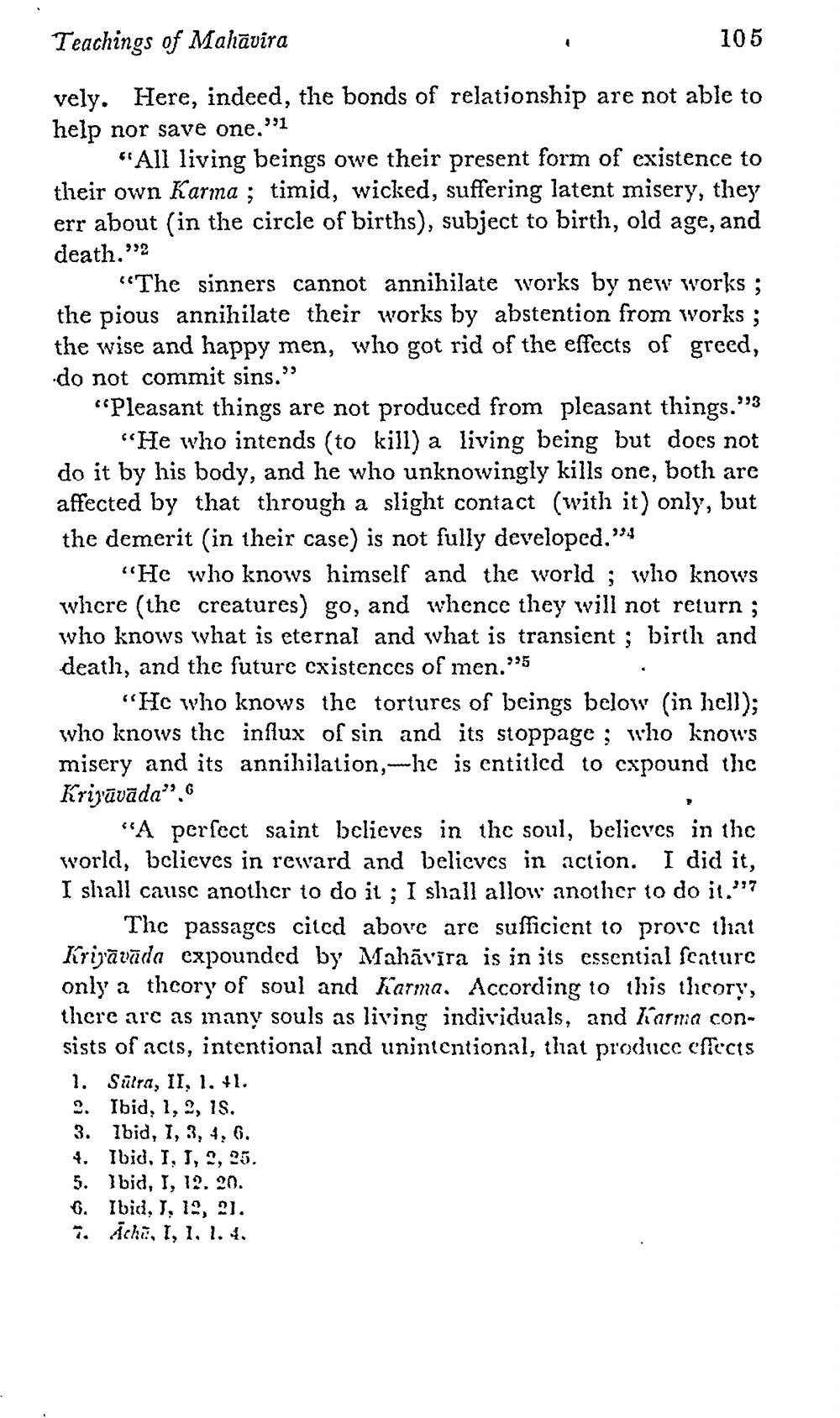________________
Teachings of Mahāvira
105
vely. Here, indeed, the bonds of relationship are not able to help nor save one."l
“All living beings owe their present form of existence to their own Karma; timid, wicked, suffering latent misery, they err about in the circle of births), subject to birth, old age, and death."
"The sinners cannot annihilate works by new works ; the pious annihilate their works by abstention from works ; the wise and happy men, who got rid of the effects of greed, do not commit sins." "Pleasant things are not produced from pleasant things."3
"He who intends (to kill) a living being but does not do it by his body, and he who unknowingly kills one, both are affected by that through a slight contact (with it) only, but the demerit (in their case) is not fully developed."
"He who knows himself and the world ; who knows where (the creatures) go, and whence they will not return; who knows what is eternal and what is transient ; birth and death, and the future existences of men."5
“He who knows the tortures of beings below (in hell); who knows the influx of sin and its stoppage ; who knows misery and its annihilation, he is entitled to cxpound the Krijāvada”. G
"A perfect saint believes in the soul, believes in the world, bclieves in reward and believes in action. I did it, I shall cause another to do it ; I shall allow another to do it."?
The passages cited above are sufficient to prove that Krijāvada expounded by Malāvīra is in its essential feature only a thcory of soul and liarma. According to this theory, there are as inany souls as living individuals, and liarma consists of acts, intentional and unintentional, that produce effects 1. Sülra, II, 1, +1. 2. Ibid, 1, 2, 18. 3. Ibid, 1, 3, 4, 6. 4. Ibid, I, J, 9, 35. 5. bid, I, 12. 20. 6. Ibid, 1, 19, 21. 7. Achi, I, 1, 1. 4.




